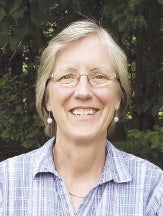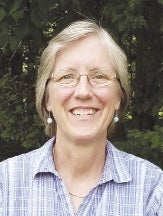We must recognize and embrace the power of nature-based solutions to combat many climate challenges.
Get Instant Access to This Article
Subscribe to Worcester Business Journal and get immediate access to all of our subscriber-only content and much more.
- Critical Central Massachusetts business news updated daily.
- Immediate access to all subscriber-only content on our website.
- Bi-weekly print or digital editions of our award-winning publication.
- Special bonus issues like the WBJ Book of Lists.
- Exclusive ticket prize draws for our in-person events.
Click here to purchase a paywall bypass link for this article.
As society struggles with the effects of a changing climate, we are relying on engineered solutions such as renewable energy to save the planet. While technology will play a critical role, we must recognize and embrace the power of nature-based solutions to combat many climate challenges. Not only are these services free, but they don’t need to be rebuilt or replaced over time.

That’s why Sudbury Valley Trustees works to conserve open spaces in Central Mass. We want to ensure current and future generations will always benefit from nature’s many services.
SVT is a nonprofit land trust working in 36 communities around the Sudbury, Assabet, and Concord rivers. We collaborate with partners to save local forests, wetlands, and farmlands and to offer area residents a chance to enjoy nature.
Nature provides clean water, clean air, and places to recreate. Large forests store carbon and moderate the earth’s temperature, and undisturbed wetlands absorb heavy rains to prevent flooding. When nature is working, we tend not to notice. But when a river beside a road overflows its banks, the water floods the road, seeps into basements, and damages bridges and buildings, all leading to expensive repairs. If that same river meandered through a wetland, the water would be absorbed without causing damage.
One recent project shows how nature’s services are at work in the Worcester region. In 2022, SVT teamed up with the Town of Berlin to protect 100 acres of land on the side of Mount Pisgah. The project was awarded an $874,000 grant from the Massachusetts Municipal Vulnerability Preparedness program in recognition of the many benefits it would provide.
These 100 acres, now called Horseshoe Pond Conservation Area, help with carbon storage, flood control, pollution mitigation, and groundwater recharge. Trails enable free recreation to improve human health. All of these benefits translate into real dollars and cents over time.
All of us – taxpayers and elected officials – need to understand the costs we avoid by leaving natural systems intact. To that end, SVT has worked with the Massachusetts Land Trust Coalition and others to develop an Economic Benefits of Open Space toolkit, available at massland.org. Designed for local decision makers, the toolkit uses data to support the argument that, over time, protecting land is the most cost-effective form of engineering.
SVT recognizes we must balance many regional priorities, among them a need for affordable housing. Not every parcel of land can or should be preserved in its natural state, and we work strategically to protect the lands offering the most natural benefits to society. Through thoughtful planning and conservation, we can all make a lasting impact on the quality of life in this region.
Lisa Vernegaard is executive director of conservation nonprofit Sudbury Valley Trustees.

